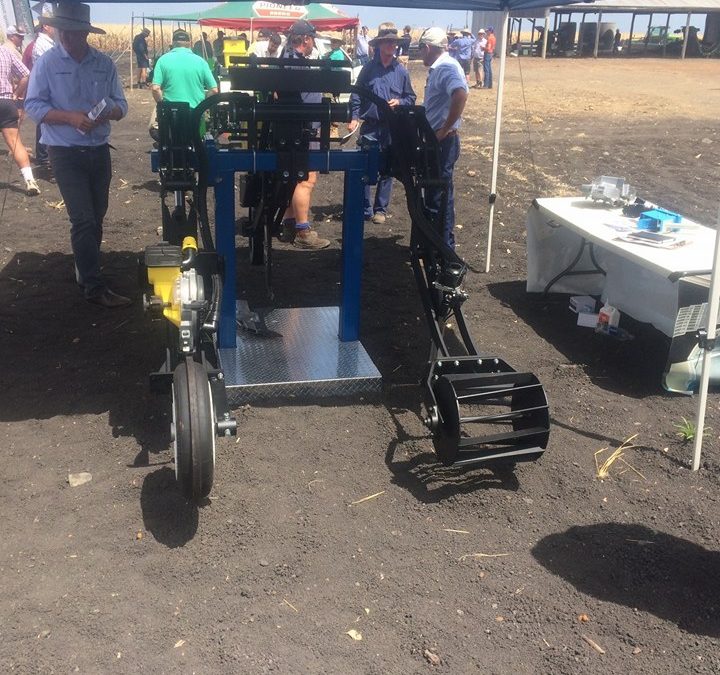A group of 8 growers from the Monto district climbed aboard the bus for a couple of intense days of learning. The group departed on a Monday afternoon to be prepared for an early start on the Tuesday morning at the Farming Systems Site Tour at Pampas (supported by GRDC, CSIRO and the State Government). The tour highlighted the use of crop rotations to increase the level of organic carbon in the soil, break disease cycles (eg nematodes) and increase per-hectare returns. Examples of different cropping intensities – single, double and long-fallow allowed the group to discuss the benefits and drawbacks of each strategy.
A visit to the Pacific Seeds shed in Toowoomba showed growers the size and operations of the large storage facility including the workings of their bagging plant, a run-down of the Quality Assurance Program and how they carry out extensive germ testing.
Paul McIntosh from Pulse Australia was available on Tuesday afternoon to show the group around Pulse Australia’s mungbean plot at Meringandan. Paul is a very experienced and accomplished Agronomist and the group enjoyed having access to his knowledge of mungbean agronomy and techniques such as crop rotation and nutrient management.
After a relatively quiet night, the group headed off early to visit Agbitech’s facility in Toowoomba where they manufacture biological pest controls. The Group were shown around the facility and had the opportunity to inspect Heliothis grubs and moths first hand.
The highlight of the tour for many of the growers was the Planter Technology Expo that was held alongside the Pioneer Corn Trial. While Pioneer celebrated the release of their new gritting corn variety, the growers were most interested in the precision planting equipment on show by various manufacturers. Growers had the opportunity to inspect various pieces of equipment and ask questions about planting depth, spacing between seeds and the pressure ratings of press wheels. Many left with ideas of how their own equipment can be modified to improve the accuracy and success of their planting.
The final stop on Wednesday was a visit with Bede O’Mara at the “Colonsay” Long Term Nutrition Trial. Bede provided in-depth information about soil nutrition and nutrient management that has been gathered at the Colonsay trial site for over 20 years. Principally monitoring nitrogen, phosphorous and sulphur, the trial results have played a key role in developing new soil tests and understanding the role of carbon. Plots included examples of zero till, minimum till, rip stripping and conventional farming. The growers were particularly interested in learning about the deep placement of fertiliser and how to adopt the method in their own operations.
The feedback at the end of the tour was overwhelmingly positive with suggestions of what topics to delve into further should the opportunity arise. A subsequent bus tour is already in the planning stages for June 2017!

